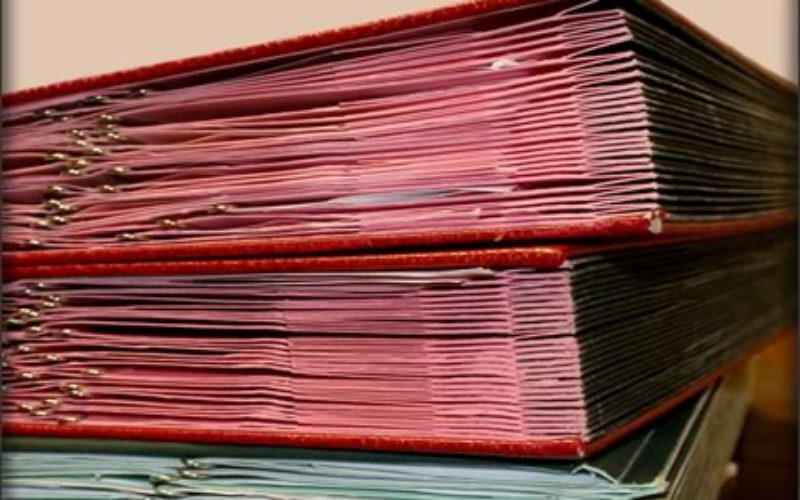Practicality is far different from reality, however. Legal documents, for one, are always of the hard copy variety and many of our taxes, bank statements and real estate matters use vast sheets of paper.
So, how long should you keep your financial records? That depends on what the document is for; some paperwork can be tossed immediately while other paperwork may even outlast you.
General Receipts
— There is no legal obligation for you to keep a receipt. However, if you charged an item, you may want to hold onto to that receipt until the credit card statement arrives. Once you confirm that the purchase has been properly recorded, then you may shred it.
Tax-deductible Receipts
— Is there an exception to the receipt guidance offered above? You bet! If a receipt is for something that you can deduct on your tax returns, then you’ll want to keep that receipt with your tax records. For example, if you own a small business and bought office supplies, have that receipt available for when you prepare your tax return. Once you file your taxes, the receipt can go away.
Tax Records
— Your tax returns should be kept for a minimum of three years, but if you’ve made a major mistake on your return in the past few years, then a six-year retention is necessary advises Maria Pippidis. The IRS also explains that tax filers should keep their returns indefinitely if they’ve filed a fraudulent return.
Assets or Investments
— What about that stock you bought or the home you currently own? If that asset or investment can someday be claimed as a loss or a gain on your income taxes, then you need to keep record of how much you paid for that item as well as any improvements you made along the way. Moreover, you’ll need to show how much you sold it for, which means that this information should be available for six or seven years after you recorded that gain or loss on your tax return notes Jennifer Saranow Schultz writing for the New York Times.
Owner’s Manuals
— There is no legal obligation for you to keep an owner’s manual. You can dispose the manual when you the item, such as a dishwasher or personal computer, is no longer in use.
Personal Records
— Family information including birth, adoption, school, health and dental information should be retained indefinitely. Add marriage and divorce records, death certificates, military records, citizenship papers and employment records.
Most of your important personal records including a will, stock certificates and savings bonds should be kept in a safe deposit box or other strong box. Set up a filing system for the rest of your paperwork, dividing that information into temporary and permanent files. Go through these latter two file groups periodically to dispose of paperwork that no long needs to be kept. Finally, invest in a shredder to destroy what you no longer need.
References
IRS: How Long Should I Keep Records?
University of Delaware Cooperative Extension: How Long Should Records Be Kept?
| google+ |
- 【HIGH CAPACITY】This filing cabinet consists of two drawers of the same size, which are large enough to accommodate A4, letters, file boxes, legal...
- 【HUMANIZED DESIGN】The steel ball bearing full extension drawer slide is noiseless, will not affect the work of others, and always maintain a quiet...
- 【UNIQUE DESIGN】This file cabinet can lock 2 drawers at the same time with one lock, and is equipped with 2 keys. Business card holders on drawers...
- Metal Material:File cabinet is made of 0.8mm thick steel,whole is solid and does not deform, and it is stronger than wooden filing cabinets in terms...
- Practical Design:5 Wheels and 360° rotation caster wheel design easier to move while prevent tipping ,the first two casters can be locked for...
- Privacy Security:1 lock secures all three drawers, comes with 2 keys for your locking ,Anti-tilt mechanism allows only one drawer to open at the same...
- All-steel Stable-Rustproof:Lateral file cabinet is made of thick high-strength cold-rolled solid all-steel material.Rugged and not easily deformed,...
- Unique Design:Built-in interlock system secures all drawers to make sure safe file, with folding key lock convenient to carry. With all drawers...
- Large Storage space:2 Drawer lateral file cabinet have deep and spacious drawers,H29*W35*D16 inch with adjustable hanging bar can hang A4 size, letter...
Last update on 2025-09-21 / Affiliate links / Images from Amazon Product Advertising API
end of post idea for home improvement
view and analyze home improvement ideas at our LetsRenovate center
Helpful article? Leave us a quick comment below.
And please give this article a rating and/or share it within your social networks.












